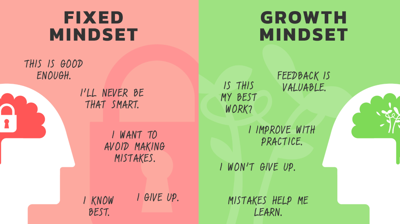It’s Q4 and crunch time for all Financial Advisors. Time to close all of the cases in your pending files. To refresh your memory, I use the term “pending files” to refer to the process of accounting for business in process as already sold. For example, “I have $250,000 in premium or assets coming in November.’ It accounts for everything you have an opportunity to capture, not a true pipeline.
One of the key reasons Advisors have “pending files” is they aren’t in control of the sales process. Most Advisors could sell more if they made it a priority to deal with the following:
- Eliminate “think it overs” from prospects
- Overcoming difficulty with confrontation
- Getting comfortable asking tough questions
- Not allowing guilt to impact performance
- Holding others accountable to commitments
The other big reason pending files exist and cases don’t get closed is because many Advisors are selling to the wrong person. The entire industry is focused on fact finding and then sell product to solve what you see as the gaps. It is sad that people are taught how to use tools or software during the sales process. No one has actually taught them how to actually sell and how people actually buy.
People buy emotionally yet justify their decisions intellectually. The decision to buy is made subconsciously and then communicated to the brain via an emotion. We justify our emotional decision to buy with logic. This transactional analysis is comprised of three parts:
- Parent Ego State: Right and Wrong, Good and Bad, What to Do/What Not to Do
- Adult Ego State: Logical, Rational, Analytical
- Child Ego State: Feelings, Emotions
The easiest way to think about how people buy is, the child must say “I want this”:
- The child wants to buy
- The parent gives permissions
- The adult justifies the decision
During the buying process, there are four main emotional drivers:
- Pain Now
- Pain in the Future
- Pleasure Now
- Pleasure in the Future
Pain is the compelling emotional reason to do business with you. If you can’t identify pain, there is no emotional reason for the prospect to buy from you. This is when “think it overs” or “chasing” occurs. You don’t put people in pain, you create an environment that allows the buyers to feel comfortable to share it with you.
Emotional drivers can be a bit tricky to identify. Typically, emotion is associated with worry, anxiety, and frustration, whereas intellect, is wonder, hope, consideration, or thinking about.
People come to us because they have concerns about their future. Most people have issues with or questions about retirement, life insurance, etc. They are embarrassed they don’t know if they’re on track to be able to retire in the lifestyle they want; they are confused about the best way to maximize their benefits at work, and they are terrified that they will outlive their savings in retirement.
In order to lead the dance or take control of the sale process, it’s imperative to identify emotional drivers during the pain funnel. In summary, you must sell to the child and pain must be present in order to close the sale!
Remember to do a little bit all of the time, not a lot some of the time.
I’d like to hear how identifying emotional drivers is working for you. Please reach out to me via LinkedIn and let me know how it’s going.

Glenn Mattson is a seasoned veteran of the selling profession, Glenn has personally built one of the leading offices for Sandler Training with his office ranking consistently in the top 1% of Sandler franchisees worldwide. He specializes in working with financial services producers and agency managers who want to shorten their selling cycles, grow their revenues, boost their productivity, and improve their operational efficiencies. Glenn's clients include many producers who seek to be MDRT qualifiers as well as Court of The Table and Top of The Table members who attribute a great deal of their success to the principles, practices, and, above all, the accountability Glenn brings to their practice. Glenn is based in Long Island, New York, but he's usually "in the field," working with clients all over the United States helping them to grow their business, revenues, and profits. Additionally, Glenn is a sought-after keynote speaker, available to speak to small or large groups on emerging business topics.






